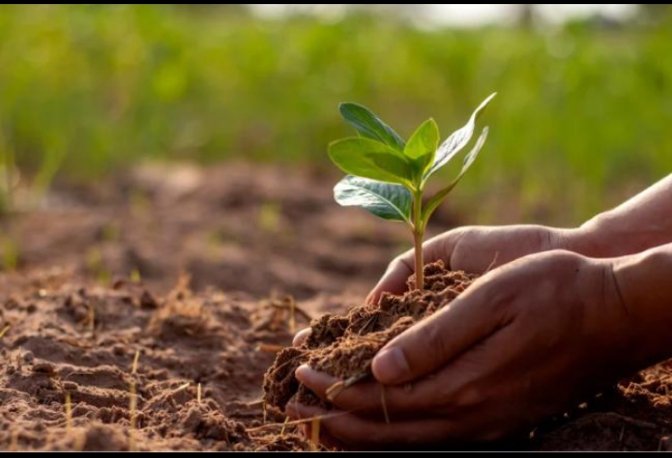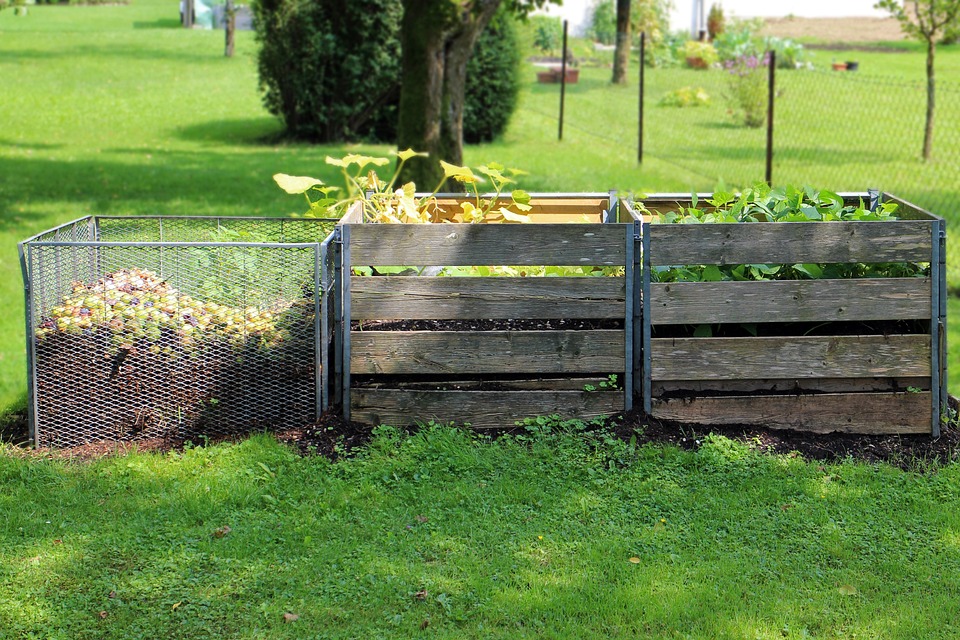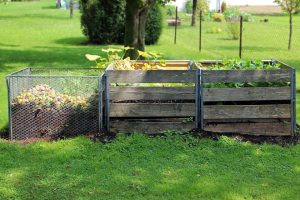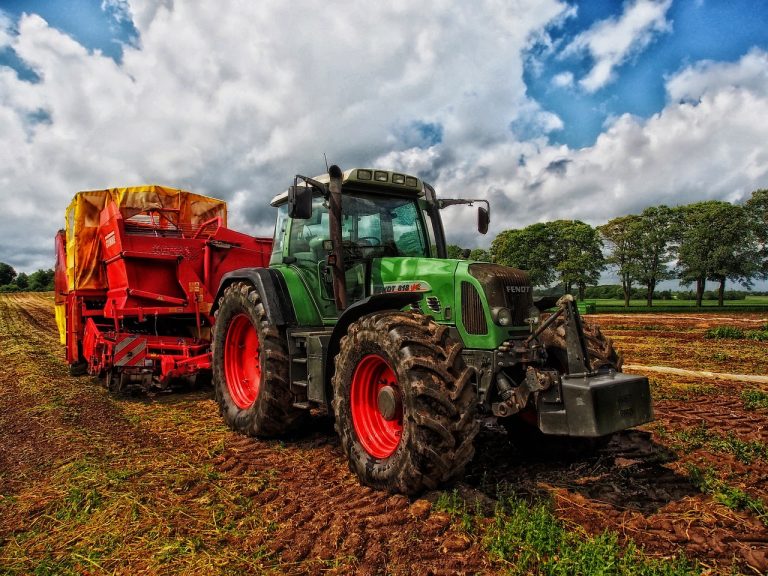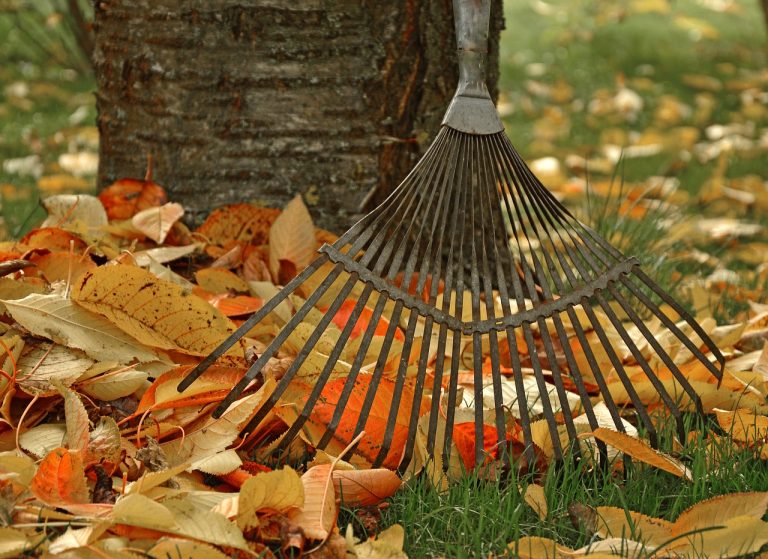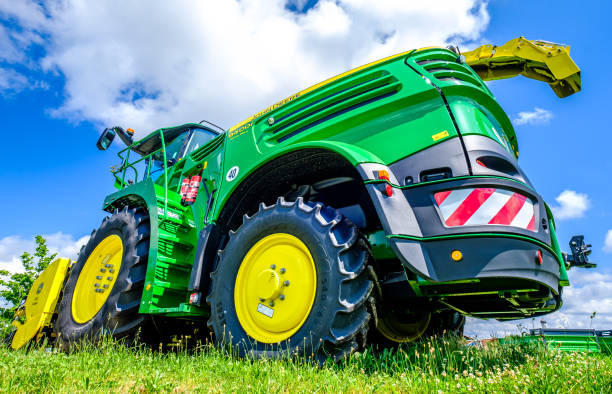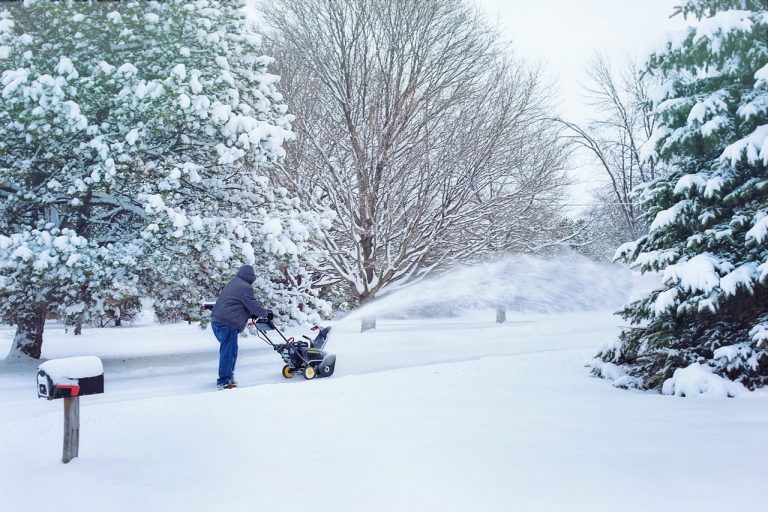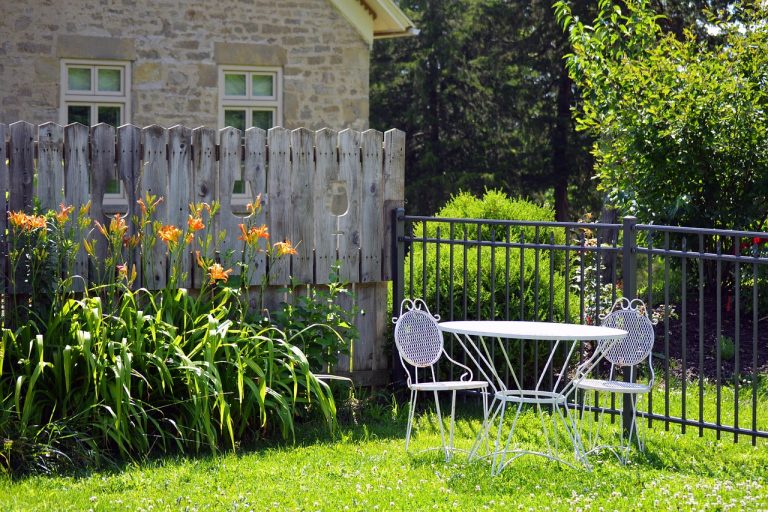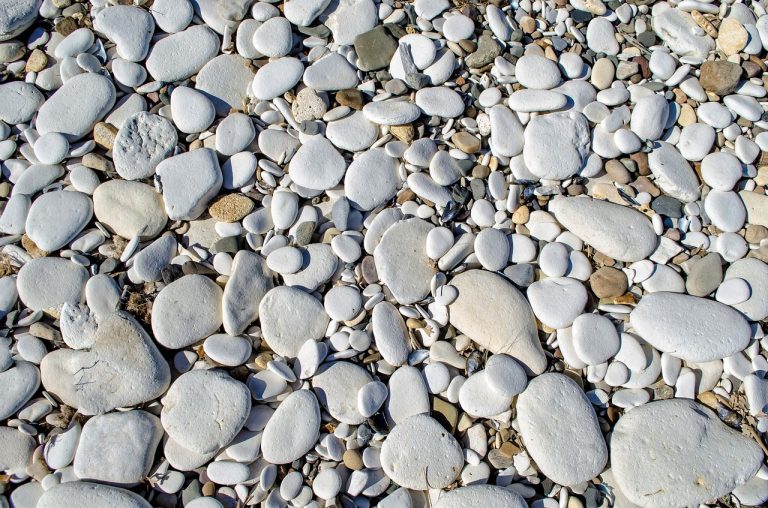WHAT TO DO WITH OLD COMPOST (6 USEFUL TIPS)
In the enchanting cycle of gardening, there’s a point when your compost pile transforms from a bustling hotbed of decomposition to a forgotten corner of your yard, filled with the rich, dark remnants of seasons past. But what do you do with old compost, the treasure chest of nutrients and earthy wisdom that it has become? It’s not just waste; it’s the legacy of countless kitchen scraps, garden clippings, and organic dreams. So, let’s embark on a journey to unlock the secrets of rejuvenating, repurposing, and breathing new life into your aged compost, turning it into the guardian of your green kingdom once more.
WHAT TO DO WITH OLD COMPOST?
“Wondering what to do with old compost? Don’t fret! Rejuvenating and reusing old compost is a sustainable gardening practice. When your compost matures and loses its initial nutrients, consider blending it with fresh compost or organic matter. This reinvigorates the microbial activity and enriches the soil.
Another option is using it as mulch to retain moisture and suppress weeds, enhancing your garden’s health. And if you have a surplus of old compost, sharing it with neighbors or local community gardens is an eco-friendly way to reduce waste and promote greener landscapes. So, whether you’re a seasoned gardener or just starting out, recycling old compost can benefit both your plants and the environment.”
USING AGED COMPOST IN THE Garden: A GARDENER’S SECRET WEAPON
Aged compost, often affectionately referred to as “black gold,” stands as a priceless treasure for garden enthusiasts. Its applications are manifold, benefiting your garden in more ways than one. One primary use is as a top dressing, where you spread a layer of aged compost on the soil surface around your plants. This technique not only nourishes your plants but also plays a pivotal role in enhancing the overall structure of your soil.
As the aged compost gradually breaks down, it serves as a slow-release reservoir of essential nutrients. These nutrients, like nitrogen, phosphorus, and potassium, become readily available to your plants, ensuring they receive the sustenance they need for robust growth. Moreover, the rich humus content of aged compost fosters a healthier soil structure, aiding in better root development and improved aeration. This translates into a garden that is more resistant to erosion, compaction, and nutrient leaching.
Taking it a step further, consider working aged compost into your garden soil. This approach involves thoroughly mixing the compost into the earth. By doing so, you’re not only infusing the soil with the nutrients contained in the compost but also enhancing its fertility. The organic matter in the compost promotes the growth of beneficial microorganisms and earthworms, which further contribute to the soil’s health. Additionally, the improved water retention capabilities of the soil result in a garden that requires less frequent watering, thus conserving resources and reducing maintenance efforts.
In essence, aged compost in the garden is like a silent partner, working diligently to bolster the vitality of your plants and the sustainability of your gardening practices.
COMPOST TEA: A LIQUID GOLD RECIPE FOR THRIVING PLANTS
Don’t discard your old compost; turn it into liquid gold by brewing compost tea. This organic elixir serves as a powerful liquid fertilizer that can be applied as a foliar spray or soil drench. The benefits it offers to your plants are nothing short of remarkable.
To create compost tea, you’ll need aeration equipment, water, and your aged compost. Simply place a portion of your compost in a porous bag or container and submerge it in water. Then, aerate the mixture, either by stirring or using a dedicated aerator, for 24 to 48 hours. During this time, beneficial microorganisms from the compost multiply, turning your brew into a nutrient-rich concoction.
Compost tea is a game-changer for your garden. When used as a foliar spray, it delivers an infusion of micronutrients and beneficial microbes directly to your plant’s leaves. This enhances their ability to photosynthesize, absorb nutrients, and develop resistance to diseases and pests. The tea can also be applied as a soil drench, ensuring that your plants’ roots receive a boost of nutrition.
Maximizing the benefits of mature compost, compost tea is a fantastic way to unlock the full potential of your garden. It’s an eco-friendly and cost-effective solution that not only promotes plant health but also reduces the need for chemical fertilizers, making it a win-win for both your garden and the environment.
COMPOST FOR MULCHING: BEYOND BEAUTY, A GARDENER’S BEST FRIEND
Mulch, often seen as a garden’s finishing touch, offers more than just aesthetic appeal. It’s a versatile tool that serves a multitude of functions, making it an invaluable asset in your gardening arsenal. While various materials can be used for mulching, your old compost can be a particularly effective choice, not just for enhancing the appearance of your garden, but for its practical benefits as well.
When you spread your aged compost as mulch in your garden beds, you’re embarking on a journey of conservation and enhancement. Here’s how it works:
MOISTURE RETENTION:
Compost mulch acts as a protective blanket, reducing water evaporation from the soil surface. This, in turn, helps to conserve precious moisture. During hot, dry spells, this moisture-retentive quality can be a lifesaver for your plants, reducing the need for frequent watering.
WEED SUPPRESSION:
Unwanted weeds are the bane of many gardeners’ existence. Using compost as mulch helps to create a physical barrier that prevents weed seeds from reaching the soil and germinating. Say goodbye to hours spent weeding and hello to a more maintenance-free garden.
TEMPERATURE CONTROL:
Compost mulch regulates soil temperature throughout the year. During the scorching heat of summer, it provides insulation, keeping the soil cooler and reducing stress on your plants’ roots. In the cold of winter, it offers some protection against freezing temperatures, helping to prevent root damage.
Incorporating aged compost into your mulching strategy not only nourishes your garden but also promotes sustainability. You’re recycling valuable organic material, reducing waste, and improving the overall health and resilience of your garden. So, next time you’re tempted to see mulch solely for its beauty, remember its invaluable role in conserving water, keeping weeds at bay, and ensuring the ideal temperature for your garden’s success.
REPOTTING AND HOUSEPLANTS: A BOOST OF LIFE WITH AGED COMPOST
Aged compost isn’t limited to outdoor gardens; it can also work wonders for your indoor plants, adding a dose of vitality to your houseplant collection. When it’s time to repot, consider this age-old gardening secret to provide your indoor greenery with essential nutrients and a nurturing environment.
When repotting your houseplants, simply mix a small amount of aged compost with your chosen potting soil. This combination provides a balanced and nutrient-rich medium for your plants. However, it’s crucial to exercise caution when using compost for indoor plants. Opt for a lighter compost blend to avoid compaction and ensure adequate drainage. A blend that includes peat moss, perlite, or vermiculite is ideal for indoor plants, ensuring proper aeration and moisture management.
This approach offers several benefits for your houseplants. Aged compost brings a wealth of nutrients to the mix, delivering organic matter, micronutrients, and beneficial microorganisms that support robust growth. It also improves the soil’s water retention capacity, ensuring your indoor plants receive consistent moisture without becoming waterlogged.
Furthermore, the microbial activity in aged compost contributes to the overall health of the plant’s root system and soil ecosystem. This, in turn, enhances nutrient uptake and disease resistance. As a result, your houseplants are more likely to thrive, displaying vibrant foliage and sturdy growth.
Incorporating aged compost into your indoor gardening routine is a sustainable way to keep your houseplants flourishing. So, the next time you undertake the task of repotting your indoor green companions, remember that a touch of well-chosen aged compost can be the key to their continued vibrancy.
COMPOSTING RENEWAL: BREATHE NEW LIFE INTO YOUR COMPOST PILE
A neglected compost pile doesn’t have to be a lost cause. If you find that your compost heap isn’t performing as it once did, there’s a solution to resurrect its composting prowess. Instead of tossing it all out, you can revive it by practicing the art of composting renewal.
To rekindle the composting process, start by mixing your old compost with fresh kitchen scraps and yard waste. This infusion of new organic materials acts like an inoculation, introducing a fresh dose of microorganisms and nutrients that are essential for decomposition. It’s akin to adding new life to a stagnant ecosystem.
As the fresh materials decompose alongside the older compost, the microorganisms, such as bacteria and fungi, work together to break down the organic matter. This synergy accelerates the decomposition process, reactivating the compost pile. The result is a rejuvenated compost that teems with life, transforming into a steady supply of nutrient-rich humus for your garden.
Composting renewal is a sustainable and eco-friendly approach that reduces waste and ensures you continue to reap the benefits of composting. So, don’t be quick to discard a seemingly lifeless compost pile. With a little care and the right blend of ingredients, you can breathe new life into it, creating a thriving source of garden nourishment.
CREATIVE REUSE OPTIONS FOR OLD COMPOST: BEYOND THE GARDEN
Your old compost holds untapped potential beyond the garden beds. Get creative with it and explore these alternative and eco-friendly ways to put it to use.
DIY POTTING MIX BASE:
Old compost can be the foundation for crafting your own potting mix. By blending it with other materials like peat moss, perlite, and vermiculite, you create a custom potting mix rich in organic matter. This mix is ideal for potted plants, offering them a nurturing environment to thrive.
POTTED PLANT SOIL CONDITIONER:
Indoor and outdoor potted plants benefit from a nutrient boost. Add a layer of aged compost to the top of your plant’s soil. As you water the plant, the compost releases nutrients gradually, providing long-term nourishment. Plus, it enhances moisture retention and microbial activity in the pot, fostering healthier growth.
SHARE THE WEALTH:
If your compost pile produces more than your garden can consume, consider sharing it. Gift excess compost to gardening friends or donate it to local community gardens. It’s a generous way to spread the benefits of composting and strengthen your gardening community.
SUSTAINABLE PAPER MAKING:
Some environmentally-conscious individuals incorporate old compost into their homemade paper. By adding finely shredded, aged compost to the paper pulp, you enhance its texture and eco-friendliness. This ingenious use of compost not only reduces waste but also creates unique, earth-friendly paper products.
These creative reuse options demonstrate that old compost is more than just a garden resource; it’s a versatile and sustainable material that can find purpose in various endeavors. So, let your imagination flow, and find innovative ways to give your old compost a second life while reducing waste and benefiting both your garden and the environment.
Frequently Asked Questions (FAQ) about “What To Do With Old Compost”:
What is old compost, and why is it important to manage it?
Old compost is compost that has fully decomposed and is no longer actively breaking down organic matter. It’s important to manage it because it can still be beneficial in the garden and for the environment.
Can I use old compost in my garden?
Yes, you can! Old compost can be a valuable soil conditioner, adding organic matter and nutrients to your soil.
How should I use old compost in my garden?
You can mix old compost with your existing soil, use it as mulch, or blend it with new compost for added nutrients. It can also be used for top dressing lawns.
Is old compost still nutrient-rich?
While old compost may have lower nutrient levels compared to fresh compost, it’s still a good source of organic matter and some nutrients.
Can I store old compost for an extended period?
Yes, you can store old compost for an extended period as long as it’s kept in a cool, dry place and protected from pests.
Can I use old compost for container gardening?
Old compost can be used in container gardening, but it’s best to mix it with fresh potting soil to provide adequate nutrients for your plants.
Are there any plants that benefit more from old compost than others?
Perennial plants, shrubs, and trees often benefit from the slow-release nutrients in old compost. They can be mixed into the planting hole when establishing these plants.
Can old compost be used for starting seeds or seedlings?
Old compost may not be the best choice for starting seeds due to its lower nutrient content. It’s better to use a seed-starting mix.
What are some alternative uses for old compost?
Old compost can be used as a top dressing for lawns, as a mulch for moisture retention, or added to potting soil to improve its structure.
How can I tell if my old compost has gone bad or is no longer usable?
Old compost should still have an earthy smell and crumbly texture. If it smells foul or appears moldy, it may not be suitable for use and should be composted further.
CONCLUSION
Knowing what to do with old compost is essential for both seasoned gardeners and beginners alike. Old compost, while no longer suitable for primary plant nutrition, still holds significant value as a soil conditioner and organic matter source. By incorporating it into garden beds, reinvigorating it with fresh organic material, or using it as mulch, we can maximize its benefits and reduce waste.
Old compost embodies the sustainable cycle of organic matter in gardening, demonstrating that even when its primary role diminishes, its worth endures in contributing to healthier soil, increased water retention, and overall ecosystem resilience. Therefore, rather than discarding old compost, we should embrace its potential to support our gardens, reduce landfill waste, and promote environmental sustainability.
